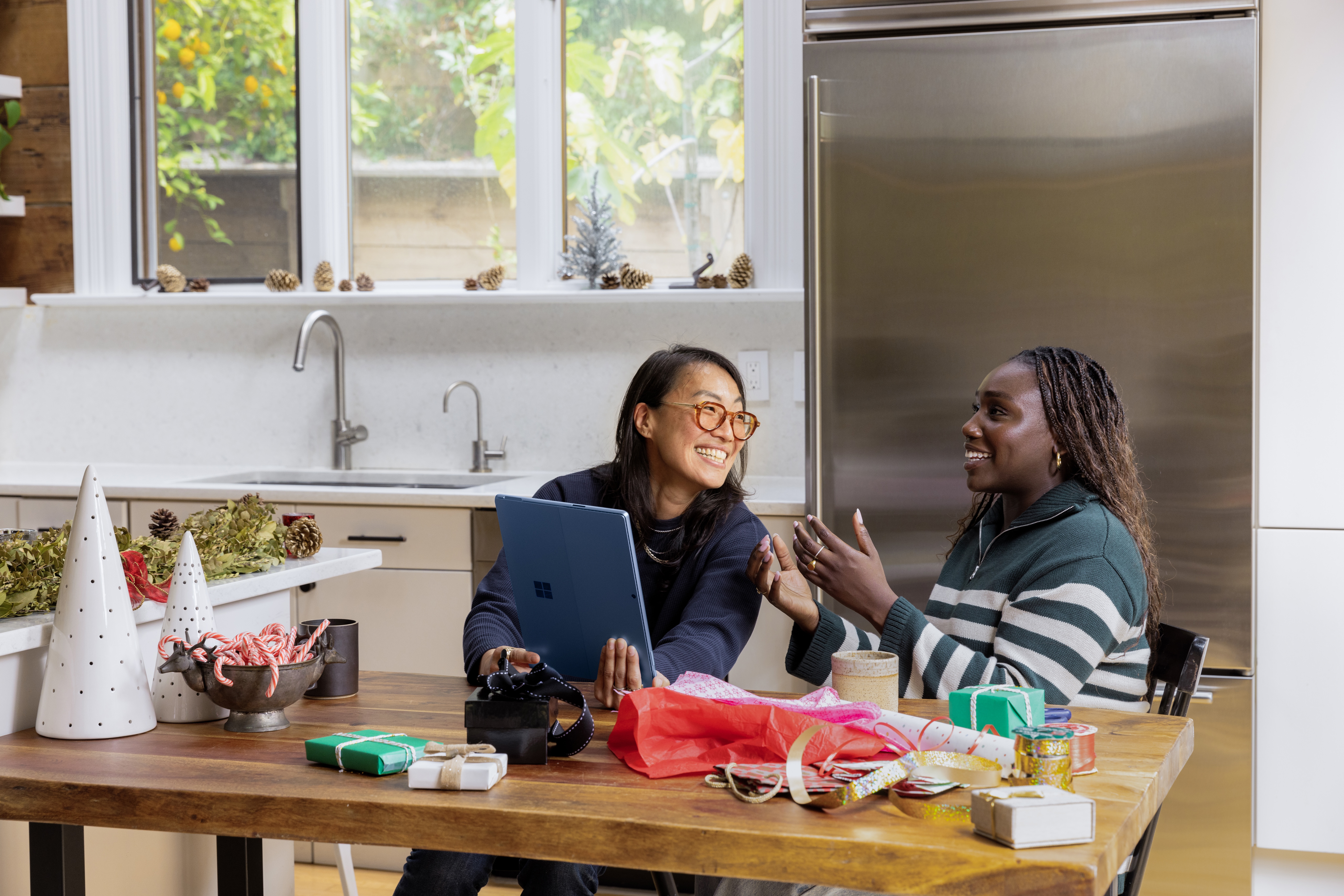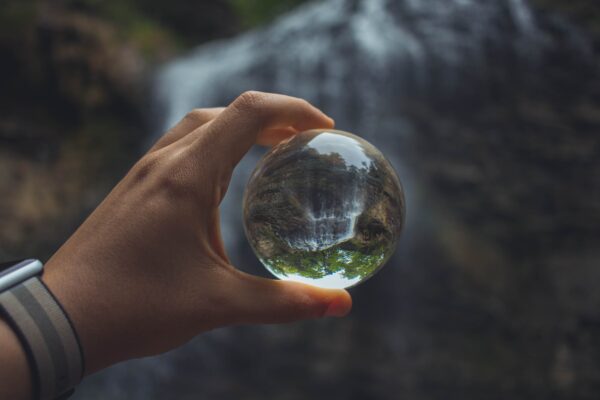Prefer audio over reading? Check out the full podcast episode here.
John Strelecky:
Hello everyone and welcome to The John Strelecky Audio Experience. Get ready for a heart to heart conversation. On this episode, Vanessa Göcking and I talk about the moments before launching into an adventure, transference of negative energy and anger keys to a happy relationship, and what it’s like to watch your four year old build confidence on an African safari.
Enjoy!
Vanessa Göcking:
When was last time you were really, really nervous? Because I mean, you are talking on so many podcasts on many stages. I think it’s like pretty normal to you, right?
John Strelecky:
I think honestly the last time I was nervous at all was I did a speaking event where I was on stage after Barack Obama. That was probably the only time I’ve been a little bit nervous.

You know, it was 15,000 people. It was a big arena. And also you’re following a guy who’s just so well known for being such a great speaker, but I think the big takeaway for me is that the more you do something that you love and the more you’re talking about something that you know, then the less likely it is that you’re going to be nervous.
Now if you asked me to talk about something I didn’t know at all, and there was something on the line, like, someone’s having a heart attack, you have to tell us how to use a defibrillator. I’d be like, okay. I have no idea. But yeah, I love what I do and I do my very best to live it every day, so it’s pretty easy to talk about it.
Vanessa Göcking:
Yeah. I can imagine it. It’s one of your Big Five for Life, right? Doing the work you are doing.
John Strelecky:
Totally.
To inspire as many people as possible through the books that I write, the movie that I’m working on, interviews like this, etcetera…
Vanessa Göcking:
Pretty cool. I mean, I’ve already heard about your Big Five for Life, but maybe you could share them with our listeners today.
John Strelecky:
Yeah, sure. I’ll give you the super brief version of it.
#1: To have a loving relationship with the people that matter most to me.
That’s something that I literally think about every single day. And to make sure that there are moments in every single day that are me actively living that.
And what’s cool about that is with all of your Big Five for life, if they truly are your Big five for life. If you’ve taken the time to figure them out, then when you’re living them, you enjoy them so much. You’re kind of like, well, why would I not be doing this? I have a daughter and one of my favorite things without a doubt is first thing in the morning to say hello, and we spend time together at the end of every night just catching up on how the day went and how she’s doing and what she’s thinking about and that’s a tradition that’s been going on literally since she was a year old.

Although back then, I guess we didn’t really catch up on how your day went. It was, it was reading little baby books, but, the point is that we spend time together every day, just talking and that’s a great thing.
#2: Travel the world.
That’s one of those things where if you haven’t gone in a while, it can be intimidating. It’s interesting, I remember following all the closures with the pandemic when we couldn’t get out, and then the very first time I actually got to pack to go on a trip. I had to think about it, Vanessa. I was like, oh wait, what do I put it the backpack? It had become so second nature to me before that, that when I didn’t do it for a couple years, there was a, not anxiety, but uncertainty. That’s a big aha lesson that the longer you stay away from the life that you want to live, the longer you stay away from your Big Five for Life, the more intimidating it might feel to get started or to get restarted. But don’t let that intimidate you. I did my packing, put my list together, I got myself to the airport and I remember distinctly boarding the plane and I have a little routine that I do when I get on a plane and I started that routine and I was like, oh, I’m back!
It’s right back in the groove.
#3: Master mind over Matter.
I’m fascinated by the capabilities that we have, whether it’s through hypnosis, whether it’s just through the way a single thought or idea can dramatically change your life. So think of things that you’ve learned in your life where before you knew them, you might have struggled, or you might have been in a place of confusion or uncertainty, and then all of a sudden you had this aha moment you thought of something that changed your life forever.
I’ll give you an example in my life, one of my favorite quotes of all time that came to me was that…
“Every expert started off knowing nothing about what they became an expert in.”
I think about that all the time when I’m embarking on a new adventure. If I feel like, oh gee, I don’t know what I’m doing. Well, that’s all right. Neither did every expert when they started. I love those aha moments where you have that spectacular flash of insight, and the cool thing is that you get to use that then for the rest of your life. And so Master mind over Matter is a big one for me.
#4: Inspire as many people as possible through the books that I write, through doing interviews and speaking events and the rest of that.
#5: Write a song that breaks the top 10 of the pop charts.
Vanessa Göcking:
I really enjoyed hearing that when I listened to you the first time. And we’ve really got some things in common. So, as you know, I’m also a big traveler. I love traveling the world. I love having an adventurous life, when it comes to traveling, but also when it comes to my everyday life,
I enjoy learning new things so much. And I also have one Big Five for Life, which is kind of crazy, but I would really, really love to get published as a fantasy author. So, I’m actually writing a fantasy novel or write a trilogy to be precise.
John Strelecky:
Good for you. Yes, so isn’t it interesting, you qualified that as saying kind of a crazy thing, but hey, listen, someone is out there. Writing and publishing fantasy novels every single day. Why not you? Right? It is very hard to get inside anyone else’s brain. Matter of fact, it’s impossible.
We think the way that our brain works and the gifts that we have, well everybody else’s brain is probably the same. That is totally not true. There are things that you do, Vanessa, that make you so unique and special that are your genius. And again, it’s kind of unfortunate that you can’t see for a moment inside someone else’s brain and realize like, whoa, they can’t think like that.
Their creative element isn’t nearly as strong as that. Now, don’t get me wrong, there’s things that you or I or anybody else can’t do well that somebody else can do well. But the point is that if we allow ourselves to recognize the genius that is within us and align our resources in that genius, why wouldn’t it be successful.
Someone’s going to do it, it might as well be you.
Vanessa Göcking:
I think if you love something, if you’re really passionate about something and if you put loads of work and time and effort and energy into it, there’s hardly no way that it doesn’t work out.
John Strelecky:
Yeah. I mean, have you ever had a job that you didn’t like?
Vanessa Göcking:
Absolutely. I did an internship in a bank, which like wasn’t my thing at all.
John Strelecky:
And did you still do relatively well at the job? You didn’t get fired from it?
Vanessa Göcking:
No I didn’t. I didn’t get fired, but I wasn’t doing well. I didn’t enjoy it.
They didn’t enjoy working with me, honestly, because also my mood was pretty bad when doing this job.
John Strelecky:

Yeah. And that’s such a great aha that when you’re doing something that you enjoy, you glow. And when you glow, people want to be around you and they want to interact with you. That’s part of the great aha moment of life too, is put yourself in positions where you glow.
Not only does it do a good job of attracting people to you from a relationship standpoint, and that doesn’t just have to be romantic. It could just be friends as well. But it also just puts you in your best possible light to do well because you’re happy, and when you’re happy, you’re personally motivated to keep going.
Vanessa Göcking:
Absolutely. Yeah. I agree. I was writing a thing that made you glow from the beginning? Like were you writing from the heart or did it did you grow into that position?
John Strelecky:
I was not someone who said, I have a dream of being a writer. I had a major unbelievable switch in my life when I was in my early thirties. I left everything behind and went to go backpack around the world to fulfill my dream of being a traveler. And so for very much the same reasons that you said, I love the adventure part. And it was really being out there that I realized just how much I loved it. Like I thought I loved travel, then when I went and backpacked around the world for a year, I realized it was so much more love than I ever realized. Because when you are out there and every single day is something interesting and different and unique. It totally reframes your perspective on a day. I used to think to myself, oh, I distinctly remember having this moment at a job that I didn’t like.

Where I would show up on a Monday and I would look at the clock and I’d be like, if I could fast forward to five o’clock on Friday right now, I would totally, if I had a time machine, one of those little slider and you’d be like, It’s Monday at nine. Nope. Slide. Now it’s Friday at five, now I’m heading off to happy hour.
I would totally do that and I look back now and think what a travesty that is, because I was willing to forego 5/7 of my life. Just to not do this thing that I didn’t like to do. And when you travel around the world, if you’re a traveler, one of the things you realize is in a day you might be on the islands off of Panama swimming with sea turtles, right?
You might be surfing off the coast of Hawaii. You might be climbing the Great Wall of China. You might be seeing animals in the wild. In Africa, you might be seeing one of my favorite things is to see elephants. You might see a baby elephant and a mommy elephant in Africa interacting with each other. You might see orangutan babies playing with their mother, like, I mean, there’s so much that you can do in a day.
Why would I ever want to hit the slider button that fast forwards through 5/7 of it.
But you only realize that once you’ve been out there really living your life, and that can only happen when you know you’re Big Five for Life.
So, yeah, I’m totally am with you. Travel does something that just lights my heart on fire.
Vanessa Göcking:
Now that you’re talking about traveling and giving all those examples, I feel that I really, really wanna go traveling again. I’m really missing it. I mean, past years have been tough and it has been tough to not go travel around and now like I feel it’s all lighting up again and inside myself.
It’s amazing.
John Strelecky:
Yeah, that’s great. And there’s a great life lesson in that too, which is the longer we stay away from the things that we love the easier it is to still stay away from them. Because if you love travel, but you haven’t traveled for a year, you forget how much you love it.
And so you’re willing to go another year without it. But the minute you surround yourself with either travel videos or having conversations with fellow travelers, instantly your energy reinvigorates. And that’s whether it’s travel, whether that’s it’s being an entrepreneur, playing a sport that you love, doing an activity that just makes your heart sing.
The more you surround yourself with people who also enjoy that. Then the easier it is for you to stay connected to it and to do it. If you surround yourself with a bunch of people who hate travel, why would you ever go travel?
Well of course that negative energy is gonna rub off on you. So that’s one of the great life lessons to me.
You don’t choose where you’re born, but you do choose where you stay and you don’t choose who you’re born to, but you do choose the people you stay around.
So allowing yourself to pick the people that you spend your time around is one of the great decisions in life.
Vanessa Göcking:
Yeah, absolutely. It can give you so much energy or it can also steal so much energy from you, depending on which people you spend time with.
John Strelecky:
Yeah, Totally, and that takes courage. I fully realize that, sometimes we change and when we change, it intimidates the people that used to be our friends, for example, or even family members.
I don’t know if you experienced this as a traveler, but you know, if you’re around people who know you as this and they’ve got a perception of you, they’ve got a picture of you and then suddenly you go off and you know, you’re wandering around in Cambodia and you come back and you’re not the same person anymore, and on some level that bothers them that, well, I knew Vanessa when she was this person. Now she’s not that same person anymore. Unconsciously they’re probably thinking, is she still gonna like me? Are we still gonna have things in common? And so they will try and hold you back at times, even people who supposedly love you or really are your great friends.
Sometimes that means you let those relationships go. Sometimes the relationship grows with you, but it is interesting to see how that changes sometimes as you are out there living your Big five for life.

Vanessa Göcking:
Absolutely. I have had that experience too. Not just with people, but also with places and the feeling they give me.
Like going, traveling and coming back and so much inside of you has changed and you’ve learned so much and you’ve grown so much and then you come back and it’s like, nothing happened here. Now it doesn’t feel right anymore.
John Strelecky:
That is so funny that you use that as the example because I remember totally having that exact same experience after a year of backpacking around the world.
I came back, I was a totally different person. On like every cellular level. I came back and I was like, dang, nothing’s changed. It was just so weird. I’ve had many other people who have gone off and done something like that come back and say the same thing. That’s a fascinating piece of the adventure of life is to realize that for a lot of people one year it’s gonna look an awful lot like the other year and look like the next year and look like the next year.
That’s okay. That’s their choice. They can do whatever they want, but it doesn’t have to be your choice.
Vanessa Göcking:
Yeah, absolutely. You already mentioned that you decided to go traveling to change your life. Was there a specific moment that made this aha moment happen?
John Strelecky:
In my early thirties and I was looking at the people that were 10 years older than me.
I remember for probably the majority of the four years leading up to that, I was in the career that I was well paid. I was really good at what I did. I was a strategy consultant for companies. My job was to make these companies more successful. I’m very happy that I had that life experience.
It’s a very big part of what has helped make me successful as an author. If I didn’t have that business expertise. So many times you see that artist, authors, other people in the creative spaces, they don’t understand business and it comes back to haunt them in a big way. And so I’m very happy that I had those life experiences and did those jobs.
I distinctly remember being in taxis, coming from airports at 11 o’clock at night after I worked all week and was now flying back from the client. And I would sit in the taxi and I would put my hands together and I was kind of like feeling the energy between my hands and knowing that there was something else besides just the physical reality.
Thinking to myself always the same thought, which is, isn’t there more to life than this? So then when I got to be, uh, in my early thirties and I was at that critical juncture, I looked at the people that were 10 years older. And I thought, if I keep doing what I’m doing, I’m gonna be him. You know, or I’m gonna be just like her.
Not that there’s anything wrong with who they were, I just didn’t wanna be that. And so I finally just said that’s it. I gotta go.
Vanessa Göcking:
Pretty amazing. Then you went, you did it, you were courageous enough. Which I find pretty, amazing. And then you wrote your book and you sent it to over 200 publishers, if I’m not mistaken, and you’ve got so many rejections.
John Strelecky:
Yeah. So I have been rejected by 200 publishers. No shortage of rejections there.
As a matter of fact, one of my favorite stories about rejection, so you send the processes, you send off a manuscript or you send off a physical copy of the book if you’ve got galley copies, And then sometimes you don’t hear anything for months and months as people get it in their office, it sit in a stack, they never get to it, whatever.
And I actually got a letter from one editor who said, uh, we don’t think this is gonna work. We don’t think people are gonna resonate with the content. And the book was already on the best seller list. Like it’s so completely contrary to reality. The big takeaway for that is that no is never the final answer, you know?
When someone says no to you, what they’re really saying is, I don’t know how to do that for you. It doesn’t mean that it’s not possible. It doesn’t mean it’s not a good idea. It just means that they don’t have the personal life experiences or business expertise or a creative genius that’s required or contacts to make it happen.
And so that was a very important thing for me to learn because when I was younger and I had really struggled with my personal self-confidence. When someone would say no to me, I would take it to heart like, oh wow, it’s a rejection, not just of the idea, but it’s a rejection of me as a human being.
That’s not the case at all. Again, someone says no to you. It just means that they don’t know how to do what needs to be done. So fine, you move on, you find the next person and ask them. If I would have stopped at one of those early rejections, imagine the tragedy there because that little book is in 43 languages now.
It’s being turned into a movie. It’s sold millions and millions of copies, and most importantly for me is always the amazing letters that I get from people very often, starting with the words, this little book has changed my life, so what a tragedy it would’ve been had I have listened to those people that said, nah, nobody’s gonna read this.Nobody’s gonna like it.
Vanessa Göcking:
Also, from my personal standpoint, because I love your books, really, they changed so much for myself and inside myself. What was it that made you keep going? Like why? Why didn’t you give up? What helped you keep going?
John Strelecky:
I think in life you get these little signs from the universe that you’re on the right path.
So certainly the way the book first came to be, you know, I came back from my adventures of traveling around the world and was very in touch with my intuition, as we tend to be as travelers. Because you’re in places, you don’t speak the language, you don’t know the customs, and you have to find food, you have to find shelter, you have to find your way around.
So one of the biggest assets you have at your disposal is your intuition. I was in that really wonderful place of trusting my intuition so when my intuition said, sit down and start typing, even though I didn’t know why that could possibly be coming through my head, I just sat down and started typing.
It lasted for 21 days and became The Cafe on the Edge of the World. Had I have not been in that wonderful space, had I not taken the leap into the adventure to go backpack around the world, I feel like the cafe would’ve found a different author. I really do. I would not be having this conversation, and it would not be my name on that story.
But, because I did demonstrate to the universe that I was willing to be an adventurer, I was willing to trust my instincts. I was willing to trust my heart that I get to be part of this amazing story, and I get to get these beautiful letters that say the book has changed my life. And there’s a magic to, to the creative side of things.
I would love to hear from you, you know, you said that the book really touched you and inspired you. First of all, how did you find the book? Did it find you or you find it, and then what was going on in your life that it had that kind of an impact on you?
Vanessa Göcking:
I had so many thoughts where you were talking first of all, of course, I wanna answer your question.
I’m reading all the time and have enjoyed reading since I’ve was a child. Whenever other kids were outside playing with other kids, playing football, playing this and that, I was actually sitting inside and reading. I was also reading on family trips, or birthday parties. I was reading while others were like watching movies. My parents thought that something’s not right with me because they would always say Hey, don’t you wanna go play or watch TV because you’re reading all the time.I just, I enjoy reading so much. I enjoy stories and I think that your way of telling stories is just so amazing because it’s so deep, but easy to understand at the same time. I love the messages. There’s so much for everyone to take out of your stories, and yet you don’t have to be a professor of science. I think they’re just so rich in every possible way. And I really do love that.
I read on The Cafe on the Edge of the World many, many years ago, and my fingers just slipped there in the bookstore. It was, there was no specific reason. I think oftentimes things happen and they don’t really make sense at the time they are happening, but it makes sense later on in life.
John Strelecky:
Well, and that’s the magic that I was talking about. I love that story. So thank you for sharing that. Kudos to you for being a young person who, at that point, you knew what you loved. You loved reading and one of the reasons you probably loved it is because reading opens us up to other worlds.
We get to travel through books and you get to experience the adventures of life through the stories of other people, especially if you read, fiction. Here you are out traveling the world through your mind and that to me is a lot more exciting than watching a television show about someone else traveling. Because then I’m a very passive participant in that story. But when I’m reading, I’m an active participant. How cool that you even at a young age had that self-awareness that in the face of society, even family members, observations, comments, the rest of that, that you were able to stay true to yourself.
By the way, I was just listening to a very interesting podcast and they were talking about what makes great writers, and they said, great writers are people who love to read. And so, given your desire to write, it’s probably a really great thing that you are someone who loves to read.

Vanessa Göcking:
Yeah, thank you for saying that. It really feels good hearing that. I have to say, I do agree because like, whenever you’re reading something, it’s your fantasy playing such a big role and you decide how the characters really look like and how the places they go really look like and what they feel, and somehow you are part of it and within the scenery.
I remember that whenever I watched the movie after reading the book of the movie or like the book, the movie’s based on, I was so disappointed because I was like, this was so, so different.
John Strelecky:
Well, that’s a perfect example. We were talking earlier about how you can never be in someone else’s brain, and so moments like that can be incredibly insightful.
That means that your creativity is unbelievably strong. Your ability to visualize is unbelievably strong. The fact that you were able to create from nothing but words on a page, an entire reality, that you could see the colors and you could see the essences of that reality. You could see whether there were pine trees or maple trees.
You could see whether there was a house or whether there was a farmhouse. All of that, your creativity invented out of nothing but a word or two on a page that tells you that that is one of your geniuses. The ability to create and be creative. Take that to heart because in all likelihood, that’s something that you do better than probably 99.99% of the population.
Vanessa Göcking:
Well, I hope so. We’ll see. Another thing I was thinking of, because you said that if you hadn’t written like The Cafe on the Edge of the Word then someone else would’ve written it because the story would have just gone to someone else. I really believe that too. And I think it’s a, it’s a super beautiful concept.
I actually read about it in the book, Big Magic by Elizabeth Gilbert, who the author of Eat Pray Love and some other amazing books, and she said the same thing and that once she was writing a story and then she decided to take a break because her life was going in a different direction, then later on in life she read that story from a different author.
John Strelecky:
Wow. Crazy isn’t it? You hear this in many different facets. You hear people coming up with the same invention, continents apart. I think Alexander Graham Bell, when he invented the telephone, I think it was Marconi at the same time, was basically coming up with the same invention, half the world away.

And so when we allow ourselves to think about why that might be happening or how that might be happening, maybe that as the collective consciousness of the universe is giving us the opportunity to interact with it and to co-create with it. There’s things that are either gonna be our co-creation moment, or if we decide to drop the ball on it, then it’s gonna be picked up by somebody else.
It doesn’t mean that we need to feel stressed about that. It just means that, wow, when it feels right and the information is pouring out of you, that this is the time to sit up and listen because maybe this is your moment. Maybe this is part of your great contribution. It also keeps you incredibly humble.
I will tell you that when I am in the process of writing, I will see the scenes taking place in front of me, much like you’re describing when you read, I will hear the dialogue of the characters and very often I will be in the writing process and I write something down. But it’s so profound that one of the characters says that I know a hundred percent it did not come from me. I did not have that within me. So it had to have come from something else. Very often it’s Casey in the cafe series, she’s this incredibly wise soul. And I love that because it keeps me very humble. I would never say that, oh no, look at me I’m the guy who wrote these books. Nope. I just get to be part of this amazing process and I’m, I’m incredibly grateful for it.
Vanessa Göcking:
It sounds like magic.
John Strelecky:
Yeah. A little bit. And you know, I think to some degree we forget that there is this unbelievable connected energy everywhere we pick up our cell phones.
Think about this. Just purely think about this. If you didn’t know how to use a cell phone, And you were from like the 18 hundreds and you suddenly arrived at our present time and you saw people holding these tiny little boxes. They’re very thin, little boxes with a piece of glass over the top, and they literally just touch on the glass a few times and then they can talk to someone anywhere in the world.
That would seem like complete magic. And what’s fascinating about that is I personally, and probably the vast majority of all of humanity, has no idea how a call phone actually works. I mean, I get the essence, it’s packets and routers and going up to satellites and down, but I can’t tell you exactly how it works, but we still use it.
Why?
Because it works. So when your intuition guides you in a particular direction, and it turns out to be true. That works. You don’t have to understand exactly all the mechanics of the cosmic algorithm of the universe. You just need to know that it works and it works very effectively.
Sometimes it’s very tactical and tangible, such as if I’m at a job that I don’t like, I probably don’t come across with great energy. I probably don’t have great energy, and therefore people aren’t gonna want to interact with me as much, and I’m not very excited about the job, so I’m not gonna be bringing my best to the work.
Like that’s somewhat tactical. But energetically, It’s when I decide that I want to be an author of fantasy books and my mind is constantly throwing these really cool ideas and characters, and then I’m sitting there at Starbucks and I’m doodling about a fantasy book idea, and the person sitting next to me says, oh, are you an author?
And you get into this amazing conversation. Like that to me is as magical as you holding up the little box with the piece of glass and you type on it a few times and someone halfway around the world talks to you. If we allow ourselves to tap into it. That cosmic algorithm of the universe is every bit as majestic, as mysterious, and as helpful as our cell phone.
Vanessa Göcking:
Yeah, absolutely. I love that example. And I also love that you’re talking about the smartphone topic because of course it is magic and you can do so many great things with it. But then also smartphone can keep you from doing great things. And that’s also something you’ve been talking about in your newest book, right?
John Strelecky:
Yeah. In, Überraschung im Café am Rande der Welt, the fourth book in the cafe series. One of the big concepts that I introduced there is this idea of being Pleasantly Occupied. So when we were kids, before smartphones, when you were a kid, and you were bored, one of the good things that happened is because you were bored, you asked yourself, Well, what would be not boring?
If you were with friends, then you collaboratively figured out, well, what adventure could we go on so that we’re not bored?
If you were sitting by yourself, well, what could I do? I could read, I could do these other things. So you’re not bored with smartphones. We’re never bored. You know, there is a boat load of information out there on every single topic in the world, and the algorithms are designed so that once you demonstrate any level of interest whatsoever, that it is gonna feed you a hundred other pieces or a thousand other pieces of content similar to that.

And so the danger is that you never get bored, therefore you never ask yourself what would be extraordinary. Instead, you can live in this state that I call pleasantly occupied. Pleasantly occupied is like a low level drug. You’re not bored, so you don’t feel bad enough to move to extraordinary, but you’re never gonna touch extraordinary if you’re just permanently sitting and pleasantly occupied.
So the trick is to get yourself to a state where you can experience extraordinary. Now, you as a fellow traveler know that. A hundred times, a thousand times over. I’m sure you’ve got spectacular travel moment. So give me an extraordinary moment. Tell me a time during your travels that you think about every time you think about it, it just makes you smile, it makes you glow.
Vanessa Göcking:
can tell you about situation, I was in Cambodia and I was renting a bike, like not a, motor bike or something, just really a regular bike where I had to work with my body and I was riding to this yoga cafe and I was going there on a regular basis. So I stayed in the same place for several days and it became some kind of routine.
I was sitting there on the bike and there were all those different colors and smells and people laughing and everything felt so alive. And I thought, oh my gosh, I’m having a routine here. Like I’m not only being here, but I actually established a routine in this place and I’m having my bike and going to yoga, drinking a coconut. It just felt so natural, but like the thing that it was so natural was special about it.
John Strelecky:
Yeah, I get that. It’s the, I’m in a place that is not my home country. It is not my home language. And I have figured out how to be a local. Yeah, there’s something so cool about that.
I totally get that. So here you are, having that experience, having that extraordinary moment. And that’s not just a single moment, that is an extraordinary week or extraordinary month, however long you were there. So once you’ve experienced that, the idea of going back and just holding up your little box with the glass cover and flipping your thumb across that screen, Does not even come close to comparing to what it’s like to be doing what you’re just describing in Cambodia.
And that’s really the whole point of what I try and share through the fourth book in the cafe series, is that if we we allow ourselves to experience extraordinary, we won’t be trapped in pleasantly occupied, because those two worlds just cannot exist at the same time.
And so the great opportunity is for us to identify our Big Five for life, to live our Big five, for life, to touch that greatness so that we can have more of that. And we’re more inspired by that. Because once you go and have an experience like that in Cambodia, then you wonder what Thailand is like, wonder what Laos is like.
It inspires you to go even farther into the adventure.
Vanessa Göcking:
Yeah, absolutely. But like I feel that many people, somehow they know it. Maybe they’re not really aware of it, they aren’t aware of how to put it into action. What’s the first step?
What should they do to actually create the life of their dreams? Do you have some kind of advice for those people?
John Strelecky:
There’s all kinds of things that I’ve discovered over the years that have worked really, really good. Probably my favorite is sampling. It depends on the person, sometimes it’s, you’re at a place in your life where you’re completely cluttered.
So I’ll go back to sampling in a second, but lemme talk about clutter. So sometimes you’re just completely cluttered. You’re in a relationship that’s not working. It’s a six out of 10, you know, it’s a six out of 10. They know it’s a six out of 10, but you’re worried about leaving a six out 10 and having nothing.
So you both stay in the relationship even though you know it’s not the right thing. In truth, by them staying in the relationship they’re keeping you from a 10 out of 10 or at least a nine out of 10 by you staying in the relationship, you’re keeping them from a nine out of 10 or a 10 out of 10.

So you’re both doing a tremendous disservice to each other, but you’re still staying in it. And that’s just clutter because when you’re in that relationship then you can’t be in a different relationship that would be a nine out of 10 or a 10 out of 10. And this goes on in so many aspects of our life, our closets are full of clutter.
Clothes that we know we don’t wear cuz we don’t like the way we look in it. But we would think to ourselves, but I bought it and it was, you know, a 60 $/Euro or somebody gave it to me as a birthday present and I don’t wanna hurt their feelings. But literally, Vanessa, it can be there for two years and you’ve never, ever put it on.
Every single person on the planet probably has one of those. Maybe not on the planet. There’s some people that are living in third world countries that are happy to have a single thing of clothing. But certainly everybody in the western world has at least a few of those in their closet. And we come up with some justification or we cannot get rid of it.
That’s just clutter. When we open up that space, energetically with physical things, then we give ourselves the opportunity to introduce more, introduce, better, introduce extraordinary. Because going back to the clothing example, we have certain things that we wear and we like, I look pretty darn good in that, you know, you feel good about yourself.
You either love the color, you love the way it fits on you. Maybe you love the fact that other people look at you a particular way. Like, he looks pretty handsome in that shirt. Maybe they’ve made comments about, oh, you look good in that shirt, whatever. But the point is that if we have certain things that we like that much, why in the world are we willing to let the rest of the closet be anything less than that?
Why not just get all of it? That makes us feel pretty good, and that doesn’t mean we need to fill the entire closet with a thousand of those. It just means that if we allow ourselves to get rid of the things and open up some space, then we have the chance to have more extraordinary in our life.
So getting rid of the clutter is a great technique. And again, that can be time too. Looking at the way you’re spending your time, what are the moments during the course of your day that are nine or 10 out tens? Maybe that’s you doing the yoga in the morning. I have a particular stretching routine I do and I feel so good when i do it. I do a breathing technique from a guy named Wim Hof. When I do that, I feel great. And if there’s other parts of your day that are not that great, then ask yourself, why am I doing this? If it’s a job and you really don’t like the job, then there are tons of other jobs out there. My favorite expression with that is, listen…..
If on the weekends what you love to do is kayak and your expertise is an accountant, then at least go be an accountant in a kayaking company so that you can blend those two things together on some level.
That seems so obvious once we know it, but I didn’t know that for decades of my life, that seems so foreign, that whole concept. Nobody had ever explained it to me and I clearly hadn’t figured it out on my own, but it is very possible that you can blend those two things together.
When you do that, you’re probably gonna be much better at it cuz you actually love the thing that you’re working on. So those are two great techniques.
Sampling is one that I absolutely love. Sampling is one of my all-time favorite recommendations for people, and that is just allowing your brain and your unconscious mind to experience things on a very small level.
What’s one of your big five for life? In addition to travel?
Vanessa Göcking:
The fantasy trilogy But then, it’s also to have a loving and caring relationship, really. So to support each other, to look in the same direction.
Well then there was the adventure part, and then there’s also to help people to become a happier version of themselves by practicing mindfulness, by, um, practicing at different methods that, I came across the years and that really helped myself. So I, I go outside there and I try to share them.
John Strelecky:
Fantastic. Okay, so let’s use that one. The helping people be, any of them would work, but let’s use the last one. So helping people become a happier version of themselves. So, from a sampling perspective, let’s say that you didn’t already have a podcast, you weren’t already doing this stuff, but in your head you were like, I think that might be part of my path.
I think that’d be part of my genius to offer the world sampling is simply allowing yourself to spend five minutes a day for a week or two weeks in that world that you think you might want to occupy. That could be nothing more than watching YouTube videos or listening to five minutes of a podcast, where that is the focus helping people, or maybe even reading an article in a magazine where you’ve got someone’s picture there and they talk about what they’ve learned, etcetera. So what’s cool on an unconscious level that happens with our brain is that our brain will look at that magazine article. If it’s written by a woman, for example, your brain would say, well, that’s a woman who wrote that article.

She’s smiling in that picture when she’s giving the advice, and I’m a woman and I like to smile, and I have these things that I think I might be good at sharing my insights with others. And so your brain is going to make that connection. What’s fascinating is the depth to which these connections are formed.
So if you see the person in the picture and they happen to have blonde hair, your brain goes, they have blonde hair, we have blonde hair. It makes the connection, oh look, the dress they’re wearing or the shirt they’re wearing is black. We have a black shirt. It makes the connection. So the more familiar you can become with what this world looks like, the more your unconscious mind is already saying, Hey, we’ve already got some things that fit with this that seem to make us happy.
That is a great way to use sampling to help move yourself into an arena that you think you might wanna try.
Vanessa Göcking:
That’s really cool. And also, I mean, the more you occupy yourself with this topic, the more similarities you will come across. So the more connections you will make. And then it’s like a positive spiral.
John Strelecky:
Totally. If you wanna go travel the world and you only seek out conversations about traveling the world once a year for one hour. What are the odds that you’re gonna actually have some really interesting insights about how to travel the world? But if every day for an hour a day, you’re actively learning on your own or engaging in conversations or, you know, listening to podcasts about traveling the world, think how much you will grow, think how much you will know about that topic. That’s really one of the things that keeps us from taking action. It’s fear of the unknown.
To your point, you talked about patterns a couple seconds ago. That is one of the greatest things that you can do by investing your time and energy in something. You start to see the patterns and once you see the pattern, it becomes less intimidating.
So for example, backpacking around the world, if you looked up or listened to podcasts from 10 different people of how I got started to backpack around the world, I can almost guarantee you that you would start to see at least 3, 4, 5 similarities in those stories. And then you’re like, all right, okay, so I get it.
I need a passport. Lonely Planet is a great series of books to use when I’m backpacking around the world, I need a backpack that’s at least a 60 liter or a 48 liter, whatever it is that they’re talking about. And, once you know those patterns and you see that data, then your brain starts to get more comfortable with this reality, cuz it’s not totally unfamiliar to you.
Now you’ve got information, you’ve got insights, and you can use that to propel yourself forward. So, yeah, that’s a great tip that you just said of immersion. It’s like learning a language. Again, if you wanna learn, Portuguese and you’re gonna spend one hour a year, good luck. But if you wanna learn Portuguese and you spend an hour a day in Portugal, or watching videos or whatever, you’re going to learn a lot more progress because you’re gonna see those patterns.
Vanessa Göcking:
Yeah, that’s true. It’s actually the same with positive thinking. So the more you actually practice, turning your mind into a positive direction, the more you practice thankfulness and the more you look at the good things, the more your brain keeps adapting and neuroplasticity is happening.
The more natural it feels after a while.
John Strelecky:
Totally. So what’s your go-to method when you encounter something that is an unpleasant moment? So something goes wrong, it goes different than you expected. How do you engage your brain in a way that is productive and positive?
Vanessa Göcking:
Well first of all, I think that all thoughts and all emotions have their place.

So I would never like have the expectation in my life to never feel sad or never feel angry. Cause I think it’s just part of being human, we have all of those emotions and all of those feelings. I try not to stay in this place for all too long because, it’s okay to feel bad for a while, but I don’t like, you know, wanna go take a bath in this state and stay there and make myself comfortable.
But then I like think about at least three things that are good in my life that I am proud of that are working out. And usually they’re much more things than three of them coming up in my mind. And I think that’s a pretty powerful technique, although it’s pretty easy and pretty simple.
John Strelecky:
Yeah. And does it always work?
Are there times when you’ve gone through three things and you’re still upset or still sad or still. Frustrated.
Vanessa Göcking:
Absolutely. Then I just think like, okay, this feeling, it’s here now. It’s okay for now, but it will go eventually, it will go away eventually because I’ve experienced it in the past. And although I know that within the situation where in this moment it doesn’t feel like it’s ever going away, but I know that it will go away.
And this gives me some kind of inner peace, I would say, um, to just go through it, maybe I have a bad day or two bad days, and do something for myself, care for myself, do things that I like and that aren’t that energy consuming, but that are rather like on like on a low energy level when it comes to things I have to put inside, but like on a high energy level when it comes to what I’m taking out of them.
John Strelecky:
That’s the pattern thing that we were talking about before. You’ve recognized that there is a pattern to these things and so it’s not like you’re gonna feel miserable forever, And so if this is a sad moment or a frustrating moment, it will pass. And by being aware of the fact that the emotion will pass, it helps the emotion pass to move on to something else.
So you’re, you’re applying tactical skills and practices to enable the mood to shift, which is the, I’m thinking of three things that I’m grateful for, or three things that I’m happy that I have in my life. And you’re also having that awareness of the pattern. Yeah, that’s incredibly powerful stuff. I’m with you. I have certain things that I do.
One of my big ahas in life is that anger is a manifestation of fear.
This struck me in a very powerful way. I was driving with my daughter one time. She was in the back as she was little. She was like two. Somebody cut me off on the road and I was just livid. I was so angry. They almost hit my car, my truck. And I just remember in that moment being so angry about it and asking myself, why am I so angry? And so what I realized is I was angry because don’t think they realized the person in the back, I love her so much, she is this amazing little kid, and you almost could have hurt us and most importantly, you could have hurt her.
How can you do that?
So I was telling my mind a story, and by now the person is literally six kilometers down the road. They’re going so fast, like they’re nowhere near me, and the moment has passed and they didn’t hit me. So this amazing awareness of anger as a manifestation of fear has helped guide me anytime I feel anger. And you know what? Sometimes I just still stay angry,I know it’s a manifestation of fear. I can tell you exactly what I’m afraid of right now, but I’m still angry, you know?
Vanessa Göcking:
So what do you do in those situations?
John Strelecky:
So, in the same way that we were just talking about, like finding other mechanisms that help you, I’ll typically go silent.
I wanna make sure that I don’t do what I call transference. Transference is one of the worst things ever to do, which is something bad happened to you earlier in the day, and you are holding that energy inside of you. You’re thinking about it, you’re frustrated by it, it’s bringing you stress, and then you’re interacting with someone who has nothing to do with it at all, and they do something or say something, or you’re in the car driving together and you transfer all of this frustration and stress and anger to them for something that in another day, in another scenario, would never have generated that that response never have generated that action. And so this is one of the worst things ever for having good relationships, whether it’s with your kids, a significant other, friends, if you can monitor your transference rates and minimize them down to zero, you will enhance not just your life, but the life of the people that you interact with as well.

Almost always, the frustration, the stress, etcetera, has nothing to do with them. It has to do with you. As a parent, this is one of the most important things that I ever discovered. And so I’m consciously aware of. It’s something that I’ve taught my daughter. We talk about transference a lot, and if I am frustrated about something, I’ll say to her, you know what, boo? I said, I’m sorry I’m so quiet right now, but I’m fully aware that this would be a transference moment for me because I’m frustrated about what just happened back at home. You know, or I’m frustrated about this contract thing that somebody didn’t do what they were supposed to. So being able to vocalize it, being able to talk it through is also helpful. And sometimes, honestly, to your question, I just need to sit in silence for 30 minutes. Then I can get myself past it.
Vanessa Göcking:
Yeah. I’ve, got a dog, his name is Henry, and he’s a Labrador. We usually go to the forest and I take him to the forest because I feel like, okay, I have to get out of here now. I have to get some fresh air, see some trees, and calm down.
John Strelecky:
Yeah, that change in perspective is a wonderful thing. Because nature isn’t amazing at that. You know, no matter how big you think your problems are, you go stand and you look up at the stars at night and you realize like your place in this whole game is infinitesimally small.
There’s a new telescope. There was Hubble, and then there’s a new telescope. My daughter was actually showing me cool pictures of it from nasa. And it shows the birthing of galaxies. I’m sorry, you think your life is important? You think your problems are important. Look at an image of the birthing of an entire galaxy and realize like, okay, like I am a speck of dust on a speck of dust, on a speck of dust in, in the whole universe.
So yeah, those moments when we can put ourselves in the midst of something nature wise or some other form of perspective can also help us shift. And again, I’m not saying I’m perfect at it. There’s times when, okay, I get all that. I’m looking up at the stars, I’m still angry, you know?
Vanessa Göcking:
Did you ever have a really bad dream about a certain person and then you were still like angry at this person or sad about something and you really took this dream into reality?
John Strelecky:
Yeah. Well, it can happen in so many different facets. When I was a kid, I always used to dream that I could dunk a basketball, and so I would wake up and I was so excited because I was a hundred percent convinced that I could go down to my driveway and I could dunk the basketball, and I was always so disappointed when I would try it because literally, as you say, in the minute that you wake up, that reality feels so, so real.
I’ve definitely had that too, where you, you have a version of a story that is told in one of your dreams and you wake up not sure if it actually is true or not. So you hold that energy, you hold that anger or that frustration. It can go the other way. You can have a fantastic experience.

One of my other favorite dreams is flying. And so in my flying dream, when I’m in it, I actually have the ability to completely control my flight movements. And so I wake up thinking I can actually do that, which would be so spectacularly cool. It’s a great life lesson because it basically means that it’s all somewhat of an illusion.
So these thoughts, these emotions, these feelings that we have are all based on a story that we’re telling ourselves. It could be a story and a dream, it could be a story based in a moment that just happened in, in what we consider to be real life. But on some level, it’s all an imaginary thing based on a story that we’re telling ourselves.
So the good thing is if I tell myself a different story, I feel different emotions. If I tell myself there’s a different interpretation of the story, I feel different emotions. A reframe of something is an example, uh, in a world, where someone has a negative moment with you. So let’s say you’re, you’re in a store and the clerk is very rude to you, very obnoxious to you.
You can either take it personal or you can say to yourself, wow, they must be having the toughest day ever. You know, maybe at home they’ve got someone who’s sick, or maybe their boss is a total jerk and they wish they were working somewhere else, and they’re trying to find a different job and allowing ourselves to be empathic towards that other person.
And just try and think of a couple of scenarios under which they’re not a villain, they’re just in a scene in the movie where it’s just not going well. Can help completely reframe that moment for us as a participant in it.
Vanessa Göcking:
I love that you said it’s just like a scene in the movie. I like that. And it also brought back to me something I wanted to ask right in the beginning of our conversation.
Cause you said the cafe will become a movie, which I find super, super exciting On the one side and then on the other side, I had those bad experiences with reading books and then watching the movie and somehow being disappointed. So, um, are you afraid that this might happen to your movie somehow?
Or what are you doing against it? So what do you do to make sure that it’s gonna be a really, really great movie?
John Strelecky:
Right. Yeah. I mean, one of the most important things is continuing to trust your intuition. There’s always gonna be a transition. When you take one art form and you turn it into another art form, there’s always going to be a difference.
Especially what you can’t control is the place in your life that you were at when you first discovered the cafe on the edge of the world is never going to be the same place when you discovered in the second art form. So whatever it did for you in a positive way that you described before, that is in part, based on your reality at that moment that you were experiencing it.
It can never quite recreate that. So part of it is, setting people’s expectations that in as much as it would be awesome to take one art form and have it be equally spectacularly amazing in the second art form for all of those reasons, it’s just, it’s reality doesn’t work that way. What film does is it enables us to portray visually things that we as the reader create in our minds.
So again, that’s never gonna be exactly the same. You talked about that, right? You create a world in your mind, a story in your mind associated with what the author is describing, but it’s never gonna be exactly the same for all people who read the book. And it’s very likely gonna be the same between you and the director or the cinematographer.
So I think it’s about walking in with open expectations that I’m not necessarily seeing The Cafe on the Edge of the World, my version as a reader, and for me as the author, I’m not going to see The Cafe on the Edge of the World, my version. I’m going to see a different version of it.
Hopefully with the same beautiful elements and the same beautiful energy, but I walk in knowing that it’s going to be different, and that’s okay cuz I still have in my bookshelf the one that talks to me in the way that I love to be talked to. I can always go back to that one.
Vanessa Göcking:
That’s true, and also, I mean, it’s exciting because it’s something new.
John Strelecky:
It is, it’s a challenge. It’s like, as we talked about, if you’ve never traveled the world and you think you’re an adventure traveler and you strap on a backpack for the first time and buy a ticket and show up in a country that has a different currency, a different culture, it’s gonna feel a little unsettling for the first little bit.

It’ll be exciting, but it’ll also be a little unsettling. And I will tell you the movie experience is just like that. Whether it’s writing the screenplay, I’ve been very actively involved in writing the screenplay. That’s a different form of writing. I’m very used to writing so that the reader has a perspective on things.
And in the film world, you literally just write, “the character is underwater and sees a lot of fish.” In my books, that’s three pages of content to describe it all so that the person has a perspective on it. And so there’s a different form of writing and there’s a different way to tell stories a little bit.
It’s been an interesting experience and I just try and do my very best to stay true to the cafe spirit and the cafe energy, while being open-minded to the fact that I’m not a filmmaker, I’m not a director, so at some point you have to trust the expertise of others. Which actually goes back to the travel thing.
You know, you were using your Cambodia experience and when you go see the temples in Angkor Wat, it’s a majestic amazing experience for anyone who hasn’t seen it in and you’re a Traveler. I highly recommend it. And that said, If you were to just walk through the temples on your own, you would get one perspective.
If you get a book from someone who’s an expert on the temples and you read that book or listen to it, as you’re walking through, you’re going to be adding someone else’s genius to your genius as you experience this moment. And another version of that would be having a tour guide. Maybe somebody who grew up among the temples and talks about how they’ve changed over time, etcetera.
So part of a film project is trusting that you’re gonna add someone else’s genius into this. You know, a cinematographer who sees the world in the form of pictures, that’s not the way I see the world. I see the world in the form of different things. I think that’s part of it too, trusting that you’re gonna add a whole lot of geniuses and it’ll all work out.
Vanessa Göcking:
That sounds amazing. John, I’m looking forward to the movie so, so much And I would love keep talking to you like all day long, because I really, really enjoyed our conversation, but I’m afraid that our hours over.
John Strelecky:
Well that’s one of the great thing about podcasts is they don’t have to just be an hour these days.
Even that has been a reframe of so much of the way we absorb content, you know? Yeah. It used to be like movies had to be 90 minutes because nobody would ever sit for longer than that. Now movies can be three hours at times. Podcasts, if it’s great content and people are getting a lot out of it, they’ll sit and listen because they’re stretching, they’re at the gym, they’re driving, etcetera.
I love the fact that all of these seemingly important rules are being redefined by us, the absorber of the content and shared back with the creators of the content.
Vanessa Göcking:
That’s true. Having more freedom to actually work in a creative way!
John Strelecky:
Totally.
Why would you end an interesting discussion in exactly 60 minutes if three minutes more would be the thing that helped an audience member make a dramatic transition in their life, you know, so yeah. I love the flexibility. So if you’ve got one more question, I’d say let’s throw it into the mix, my friend.
Vanessa Göcking:
Yeah, actually I’ve, got thousands of questions because, you know, I was so nervous before I created a whole list of questions, and I think I haven’t asked any, like a single one of them because our conversations are just so natural. But let, let me pick one, one last question.
John Strelecky:
We can always do a second round of interview too.
It doesn’t have to be this one discussion.
Vanessa Göcking:
That would be amazing. Then, let’s say for today, what would you say is like the key to a happy and healthy relationship?
John Strelecky:
The key to a happy and healthy relationship. My first instinctual response to that is to know your personal Big Five for Life.
Be aligning your resources towards those. And by resources, I’m talking about everything from financial, to time, to energy, to thoughts. If we are counting on someone else to make us happy, it places an undue amount of stress and burden on that person because they’re never gonna be in our brain.
They’re never gonna truly know what makes us happy. At the end of the day, the only person who can really make us happy is us. People can have a positive impact on us. We can love to spend time with them. They can bring us moments of joy. But that true happiness part that’s really up to us, and that is your Big Five for Life.
Those are the five things you most want to do, see or experience while you’re here on this amazing planet. So if you want to be in an amazing relationship, know yours inside and out, and be aligning your resources towards those. Help your partner, your friend, whoever it is that’s in that relationship with you, help them figure out theirs if they’re struggling with it.
If they know theirs and they’re aligning their resources and you know yours, and you’re aligning your resources, it makes for the opportunity for a truly spectacular relationship.
Vanessa Göcking:
Thank you so much. I really enjoyed what you were saying because I feel that, love plays such an important part in our lives and I have so many clients at the moment being unhappy in their relationship and I love giving something to them, you know, food for thoughts.
I agree that it’s important to care for each other and support each other and do things with each other. In the end, the first thing we really need to do is make ourselves happy and then put this energy back into a relationship and really be ready for a relationship before going into it.
John Strelecky:
Yeah, totally. Otherwise what happens is transference. The frustration you feel about not knowing who you are, what you wanna do with your life, the frustration about not having those things in your life that bring you that joy. Those things will then be vented towards the other person in your life.
They’re not actually the source of the problem. They’re not the lack that you’re feeling, but because you don’t know what is the lack and you don’t have a way to get out of that emotional state, inevitably people will vent it towards the person who’s in bed with them or in the room next door to them.
You can eliminate that one and you can have real constructive dialogues about that. You can be in for an amazing relationship and one that can be the most loving relationship ever. That’s really the goal. It reminds me, so the big project that I’m working on now is, uh, in the past with the big five for life.
I had it just within my company and I’ve made a big personal decision to follow through on something that people have been asking about for long, long time, which is, I’ve had so many requests over the years people saying, John, I would love to help people discover their big five for life.

Would you teach me, would you allow other people to learn that process and then help people? For a number of reasons, because I got burned in the past a couple times with people that were inauthentic and were out of sync with who I am and the way that I see the world. I’d always been said, no, no, no. Not doing that again, not heading down that train ride.
During the last couple of years as I’ve seen the world’s experience so much pain, I’ve seen people struggle so much and I’ve met so many amazing people, yourself included, who are doing spectacular things. And I know the power that comes from understanding your Big Five for Life.
I realize I’m not gonna be out there being the conduit for that information. So I’ve decided to let other people go through this process of, not only discovering their own Big Five for life, but learning the process to help others discover theirs too. So my hope is that going forward, that as more and more people have that awareness, have access to those type of resources, people can help them, that you’re gonna see relationships like what we’re talking about because it’s just a shifting of your mind.
It’s a shifting of your behaviors. Transference is the ultimate example of that. To me. Once you understand transference, and once you understand anger as a manifestation of fear, you no longer have to follow the old patterns. You can be outside of the reality. As the reality is happening, you can be the participant in the reality and you can be outside of it observing your own behavior and your thoughts and emotions and feelings while adjusting it and fixing it so that you don’t repeat the same patterns again and again and again.
Yeah. And these are the kind of things that come with knowing your Big Five for Life. And so I’m super excited about it. There is a tiny bit of trepidation inside of me still. I’m not gonna lie, I’m still a little bit worried but I’m way more intuitively feeling that it is the time to, to let other people in on this amazing adventure of helping people discover their Big Five for Life.
I’m excited about it. And so it’s very much like the emotions we talked about when you haven’t traveled for a while and you put on the backpack and it’s a tiny bit like, okay, what am I doing? But, um, I know in my heart it’s the right thing to do.
Vanessa Göcking:
Wow super cool. So, so many more things to look forward to. I had one last thought about like the relationship thing. So of course it’s important to know your Big Five for Life and to have controlled over your emotions and thinking and everything. But then it’s also important to find another person who is on the same page.
John Strelecky:
Exactly. I think this is one of those where you can only see what you. What you know. And so if you have never thought about or heard about, and I’m not saying it’s a, it’s, it’s anybody’s fault. I never understood the concept of transference for decades of my life until it finally hit me, and then I understood it.
If you don’t understand those things, then that’s not part of your journey yet. But once you have the ability to understand them and see them for what they are. Now you can look for a partner or, someone significant in your life who also understands them or who might even be receptive to hearing about the concept.
I just read this amazing thing. I can’t believe it. I’ve never thought about life this way. And you can engage in a discussion, It’s a discussion of like, wow, imagine what life could look like if I could master this, and the other person might be saying to themself, wow, imagine if I could master it too.
Imagine what our relationships would look like. Imagine what our conversations would look like.
So yeah, I think that when you allow yourself to grow and see these things, it opens up your field of vision to realize what that potential partner could look like. Because at a base level, we’re wired by the most stupid thing ever, which is, oh look, they’re pretty, or they’re handsome.
Oh, look, they smiled at me. I smiled at them. They seemed to like me. I seemed to like them. Like, okay, that’s the great basis for procreating and having a baby. But that is not the great basis for having a long-term relationship, that you are excited to wake up and see that person in the room with you every single day.
There’s so much more to it. But biologically, we’re wired with the most basic of basic, of basic instincts.
Vanessa Göcking:
True. Yeah, I really like that concept in your new book when, Casey and Emma explained to Hannah what it’s like really about having a relationship and what you should really look forward to and where you should be careful and all of that. I like it a lot.
John Strelecky:
Thank you. Yeah. So people often ask me, you know, the character of Hannah is 15. Your daughter is 15. Is there any reason why you’re having these things be a part of the conversation now? And I feel that we are woefully unprepared typically as we go through life.
I went through so much of my adolescent life and if I had understood these basic drives that I talk about in the fourth Cafe book and the way in which they laughably control. If we’re not careful, our thoughts and our behaviors and how we unfortunately will very often become something or someone not because it’s who we are, but because we think, oh, well that’s the path to get someone to like me, and if I get someone to like me, it will prove that I’m relevant. The whole pattern is just unbelievably crazy. So I thoroughly enjoyed the process of thinking through it and writing it and having Hannah experience it through the wisdom of Casey and Emma.
And I joyfully saw my daughter read it and hope that to some degree some of that information will connect with her because she’s also 15.
Vanessa Göcking:
Yeah, absolutely and yet at the same time, there might be lessons that she has to learn by herself.
John Strelecky:
Right, totally, and lessons that she teaches me. A hundred percent.
This is my final story because I know we’ve been on for a long time. This is my final story, in terms of thinking that we need to be the one teaching the lessons to our kids when in truth it’s a collaborative back and forth effort. We were on a trip, backpacking around the world for a year when my daughter was four and a half to five and a half years old.
The goal was to help her be worldly, help her show, help her see that there are these amazing place out there outside of our neighborhood, our house, the things that you know inside your own neighborhood. So we literally traveled around the world. She loves animals and so the goal was to help her experience travel culture animals be very worldly around the world.

We went to Africa, we went to Namibia, and we went to Malaysia to see orangutans in the wild. We went to Australia to see kangaroos and for her to hold a koala bear. When we were in Namibia, I don’t know if you’ve been there as part of your travels, but Namibia is very different. It’s a very spectacular country, but it is so remote and so dry and so desolate that you literally will be driving for four hours and never see another human being.
It’s like desert dry. It is so incredibly dry. So I remember, we had picked that we were gonna drive to this destination and supposedly it was like a watershed. There was a river and something else. So Vanessa, we had been driving for hours and the roads that are unpaved and so it’s like literally every half second you’re bouncing in your car. So for four hours, 30 kilometers an hour, cuz you can’t go faster than that and you’re just bouncing. I was at my wit’s end, we finally arrive at this campsite, which is supposed to be on the river. We get there, the river is dried up.
There’s nothing there except bathrooms. There’s no kitchen, there’s no any sort of food source whatsoever. And I’m like, oh my God, I can’t believe it. Right? This is where we’re at. I had been teaching my daughter something for a long time, which is don’t let the small things keep you from the big things.
So I’m unpacking the tent from the car. I’m pissed off, I’m frustrated. I’m annoyed, right? And my little girl, four and a half years old, walks up to me, puts her tiny little hand on my shoulder and she says, dad, everything will be okay. We’ll get the tent set up, everything will be okay. You can’t let the small things keep you from the big things.
We’re having a great big adventure. It’s okay that this spot isn’t everything that we hoped it would be. I’m like, what the heck, how at four and a half do you have that inside of you? Right? And it is never lost on me the fact that we have something to learn from everyone and we have something to share with everyone too.
Everyone can be our teacher, especially our kids!
Thanks for reading everyone. This episode has been brought to you by the fantastically awesome JS audio team, produced by the talented and so darn fascinating, Larry Hutter. All right, everybody.
Remember, life is short, statistically 28,900 days. So get out there and make this one a Museum Day.


